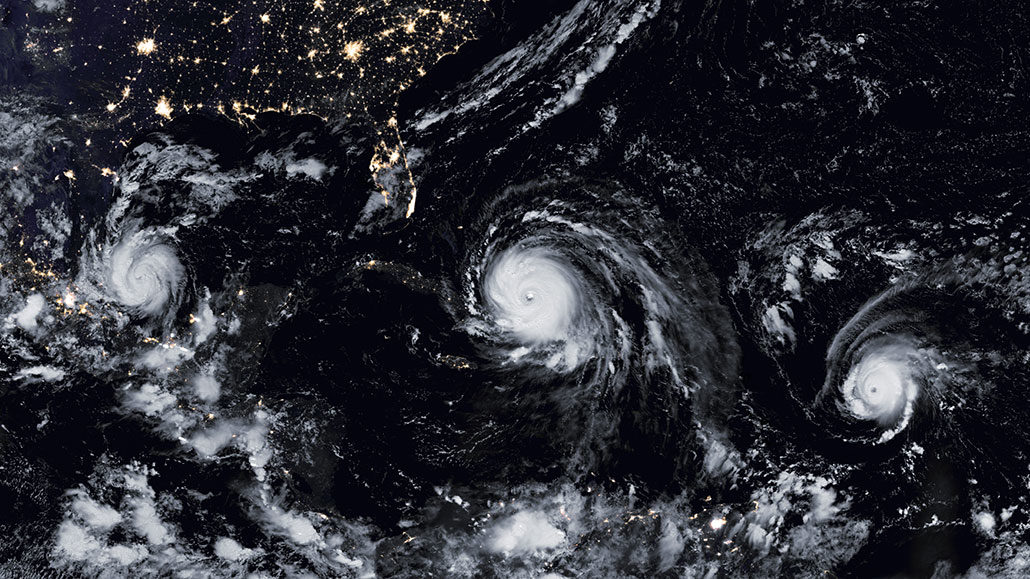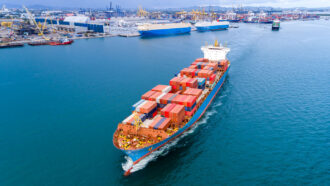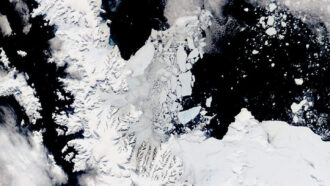Atlantic: One of the world’s five oceans, it is second in size only to the Pacific. It separates Europe and Africa to the east from North and South America to the west.
black hole: A region of space having a gravitational field so intense that no matter or radiation (including light) can escape.
climate: The weather conditions that typically exist in one area, in general, or over a long period.
climate change: Long-term, significant change in the climate of Earth. It can happen naturally or in response to human activities, including the burning of fossil fuels and clearing of forests.
cyclone: A strong, rotating vortex, usually made of wind. Notable examples include a tornado or hurricane.
data: Facts and/or statistics collected together for analysis but not necessarily organized in a way that gives them meaning. For digital information (the type stored by computers), those data typically are numbers stored in a binary code, portrayed as strings of zeros and ones.
galaxy: A group of stars — and usually dark matter — all held together by gravity. Giant galaxies, such as the Milky Way, often have more than 100 billion stars. The dimmest galaxies may have just a few thousand. Some galaxies also have gas and dust from which they make new stars.
hurricane: A tropical cyclone that occurs in the Atlantic Ocean and has winds of 119 kilometers (74 miles) per hour or greater. When such a storm occurs in the Pacific Ocean, people refer to it as a typhoon.
Pacific: The largest of the world’s five oceans. It separates Asia and Australia to the west from North and South America to the east.
speed of light: A constant often used in physics, corresponding to 1.08 billion kilometers (671 million miles) per hour.
tornado: A violently rotating column of air extending from the ground to a thunderstorm above.
tropical cyclone: A strong, rotating storm. These usually form over tropical areas around the equator where the water is warm. Tropical cyclones have strong winds of more than 119 kilometers (74 miles) per hour and usually have heavy rain. Large ones in the Atlantic are known as hurricanes. Those in the Pacific are termed typhoons.
typhoon: A tropical cyclone that occurs in the Pacific or Indian oceans and has winds of 119 kilometers (74 miles) per hour or greater. In the Atlantic Ocean, such storm are referred to as hurricanes.
weather: Conditions in the atmosphere at a localized place and a particular time. It is usually described in terms of particular features, such as air pressure, humidity, moisture, any precipitation (rain, snow or ice), temperature and wind speed. Weather constitutes the actual conditions that occur at any time and place. It’s different from climate, which is a description of the conditions that tend to occur in some general region during a particular month or season.








